New BEV Brands

GAC Aion Hyper GZ
(Mit freundlicher Genehmigung/Courtesy of GAC Aion New Energy Automobile Co., Ltd. [Press Gallery])
Management Summary
The traditional automotive companies, some of which have been manufacturing vehicles with internal combustion engines for more than 100 years, are challenged by the paradigm shift in the automotive industry. Worldwide, companies such as Ford, VW and Nissan have begun to successively transform their combustion engine brands into BEV brands. To this end, they are electrifying familiar models or creating new BEV series.
Chinese manufacturers in particular are showing an alternative reaction. Since the Chinese market does not have such a long automotive tradition, brand awareness is nowhere near as pronounced as in Europe or the USA.
Private companies such as the Geely Group, but also state-owned companies such as SAIC, are seizing their opportunity and establishing new BEV brands and subsidiaries. But companies from other business fields, such as Xiaomi (smart phone manufacturer) and Evergrande (real estate), also want to enter the automotive market and are launching new BEV brands.
The already established new BEV brands include GAC Aion, Ora, Zeekr and Polestar, all 4 brands have already sold more than 50,000 vehicles in 2022.
The 1st place in terms of sales figures is interestingly occupied by the state-owned company GAC with its new brand GAC Aion. Under this brand, more than 270,000 vehicles have already been sold in China in 2022, putting GAC Aion well ahead of the start-ups NIO and Xpeng, which are much better known in this country, and which each sold only ~120,000 units in 2022.
In second place, with ~100,000 vehicles sold in 2022, is the BEV brand Ora of the private Chinese car company Great-Wall-Motors. Ora belongs to the so-called minicars in China; in this vehicle category, Ora is the most successful new BEV brand from an internal combustion engine manufacturer.
The 3rd and 4th places are occupied by the new BEV brands Zeekr and Polestar of the private Geely Group.
Zeekr sold 70,000 vehicles in 2022. This figure is impressive in that these are high-priced premium models. With the Zeekr 001, Geely also wants to conquer the European market.
Polestar is the Swedish BEV brand of a Geely-Volvo joint venture. Since Volvo itself belongs to the Geely Group, it is basically a Chinese brand and the vehicles are also produced in China. Polestar currently sells its vehicles in 27 countries, including Germany. In 2022, Polestar sold a good 50,000 vehicles, 7000 of them in Germany.
Voyah, Hycan, Rising Auto, Evergrande New Energy Auto, Xiaomi and possibly Apple are among the new BEV brands under development.
Yoyah is a new premium brand from Dongfeng, though the brand was only launched in 2021. Nearly 20,000 vehicles were delivered in 2022.
Hycan is GAC’s second new BEV brand; Guangzhou Automobile Group is already very successful with its first brand, GAC Aion. In each of September to November 2022, ~3,000 Hycan brand vehicles were delivered, but production did not start until mid-2022.
Rising Auto is a new BEV brand from SAIC Motors, this brand originally traces back to British vehicle manufacturer Rover. November 2022 was the first full production month, Rising Auto was able to sell ~1,500 vehicles in the domestic market in that month.
Evergrande New Energy Auto is a new division of China’s largest real estate company Evergrande, which has made headlines for its debt crisis. Due to financial constraints as well as possibly low demand, production had to be interrupted several times in 2022 and 2023.
Xiamio has already officially communicated its car ambitions and initially plans to develop 4 BEV models. In total, $10 billion is to be invested over the next few years. The first model is to be unveiled at the end of 2023 and sold from 2024. It remains to be seen whether the leading Chinese smartphone manufacturer can assert itself on the very competitive domestic market.
Apple basically pursues a very defensive communication strategy, so there are no official press releases about the Apple Car from the iPhone manufacturer from Cupertino. It seems to be clear that Apple would develop the car in-house and have it produced by a contract manufacturer.
According to the current “rumor mill”, Apple has said goodbye to the quite revolutionary approach of a vehicle without a steering wheel. Instead, a vehicle with a classic driver interface is being developed and is expected to hit the market in 2026. Of course, with iPhone operating philosophy, Apple chip technology and assistance systems for autonomous driving.
But whether Apple will even enter the automotive industry remains an open question. The tech giant would be late to the BEV market, and a breakthrough like the iPhone would hardly be possible. But let’s be surprised.
Established new BEV brands
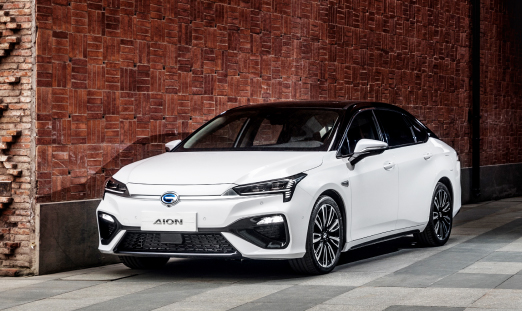
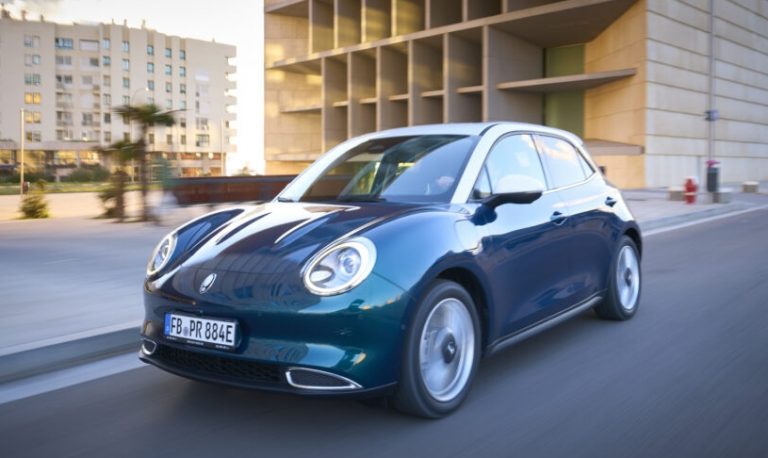
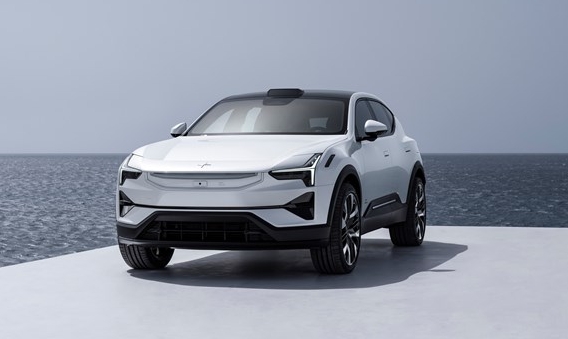
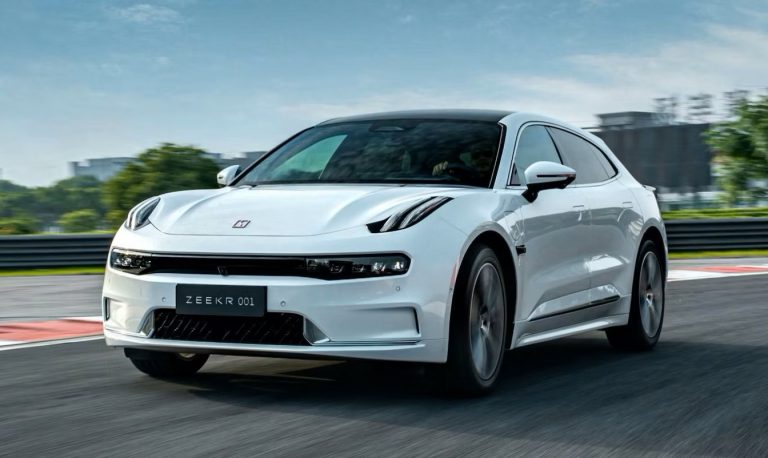
Fig. 1 – GAC Aion S | Ora Funky Cat | Zeekr 001 | Polestar 3
(Mit freundlicher Genehmigung/Courtesy of (1) GAC Aion New Energy Automobile Co., Ltd. (2) O! Automobile GmbH (3) NDIMO Automotive GmbH (4) Zhejiang extremely krypton Intelligent Technology Co (5) Polestar AB
GAC Aion was founded in 2017, with GAC standing for Guangzhou Automobile Group. This is a state-owned company dating back to 1954, and GAC is currently the fifth-largest Chinese automaker.
The models offered include classic sedans (AION S, AION S Plus) as well as SUVs (AION LX Plus, AION V Plus, AION Y Plus), nothing is known about an export to Europe so far. GAC Aion sold more than 270,000 vehicles in its home market in 2022. Growth appears to continue in 2023 as well, with the brand selling more than 40,000 units for the second consecutive month in April 2023.
Under the Ora brand, Great-Wall-Motors unveiled its first concept vehicles as early as 2008, but production and sales did not start until 2018. Ora’s models have an eye-catching design and clearly borrow from European vehicles such as the VW Beetle and Fiat 500.
In the minicar category, Ora’s White Cat and Black Cat models are the most successful new BEV brand from an internal combustion manufacturer, totaling ~100,000 vehicles sold in 2022. For 2023, Ora plans to sell 6000 Funky Cat models in Germany, the vehicles can be purchased through the Emil Frey Group.
Zeekr was not founded until 2021, and the brand is to cover the premium segment in the Geely Group. The first model 001 is based on the Porsche Tycan Shooting Brake, i.e. a sporty 4-door station wagon with a coupe-like rear. In maximum configuration, a 140 kWh battery from CATL is available, which should enable 1000 km range according to the CLTC cycle.
The Zeekr 001 is also scheduled for export to Europe in 2023. The 2nd model, the Zeekr 009, is a combination of VAN and SUV, has 3 rows of seats; the boxy design with the very dominant front end is rather not to European taste.
In total, Zeekr 2022 has already sold just under 72,000 vehicles; with sales starting in October 2021, one can certainly speak of an initial success.
Polestar is the only European new BEV brand, albeit with Chinese owners. Originally founded as a racing company, the Polestar brand is now owned by a Geely-Volvo joint venture. Polestart focuses on sporty vehicles within the Geely Group, and its models are currently sold in 27 countries, including Germany.
Polestart could sell ~50,000 vehicles in 2022, including 7000 in Germany.
New BEV brands under development
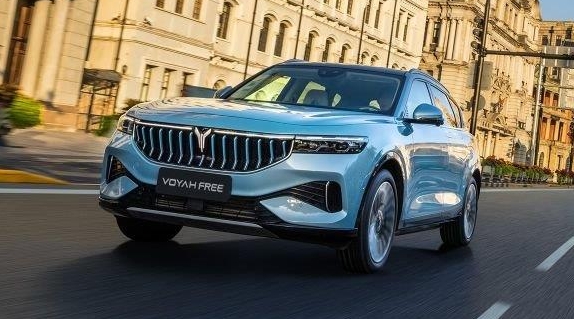
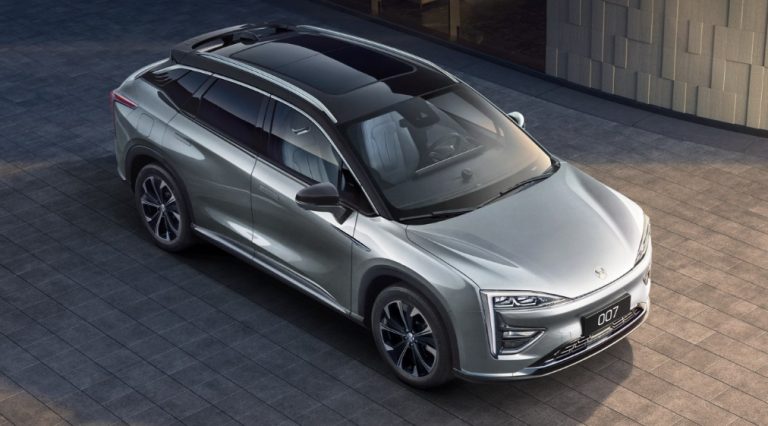
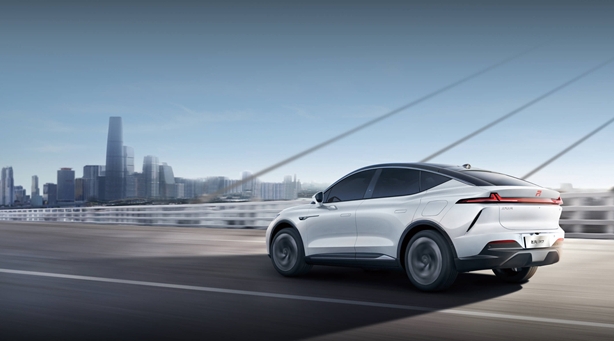
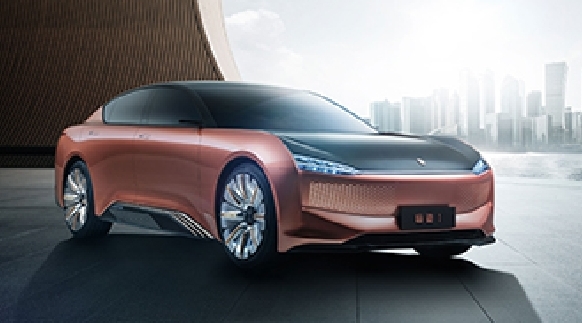
Fig. 2 – Voyah Free | Hycan 007 | Rising Auto R7 | Evergrande New Energy Auto Hengchi1
(Mit freundlicher Genehmigung/Courtesy of (1) Dongfeng Motor Company (2) Hechuang Automotive Technology Co., Ltd. (3) SAIC Motor Corporation Limited (4) Evergrande Group
Voyah, Hycan, Rising Auto, and Evergrande are still very young BEV brands, with production starting only in 2021 or 2022 in each case (Fig. 2).
Xiamoi’s vehicle models are still in development, with sales not planned until 2024.
Voyah is a new premium brand from Chinese automaker Dongfeng, and the BEV brand was only established in 2021. Dongfeng itself is the second largest state-owned automaker in China. The first model is an SUV called Voyah Free, which is comparable to Mercedes-Benz’s EQE SUV with a length of 4.9 meters.
The first vehicles were delivered as early as 2021, and nearly 20,000 units could be sold in 2022. Dongfeng has now received EU type approval for the Voyah Free, which means the vehicle can be exported to 27 countries in the European Union as well as Norway, Switzerland and Israel.
Hycan is a new BEV brand of the joint venture between GAC and NIO launched in 2018. NIO has since withdrawn from the joint venture, meaning Hycan is now a GAC-only brand. Production did not start until mid-2022, with ~3,000 vehicles delivered in each of the months from September to November 2022.
The first model is an SUV called 007, the vehicle is based on a GAC platform and is available with 2 battery sizes. Other models include a coupe-like sedan (A06), a compact SUV (Z03), and a large SUV with 3 rows of seats (V09).
Rising Auto is a new BEV brand from SAIC Motor, the largest, state-owned automaker from China. The origin of the brand goes back to the British vehicle manufacturer Rover. SAIC Motor bought the model rights to the 25 and 75 series in 2004 without taking over Rover’s trademark rights. SAIC instead established a new brand with the similar-sounding name Roewe, which means “glorious force” in Chinese.
The R sub-brand was created in 2020 for Roewe’s BEV models, which was renamed Rising Auto in 2021. Current models include the R7 SUV and the F7 sedan, each modeled after Tesla’s Model Y and Model 3. In its first full month of production in November 2022, Rising Auto sold ~1500 vehicles in its home market.
is a subsidiary of Evergrande Group, one of the largest Chinese real estate companies. The parent company has hit the headlines due to its debt crisis, the foundation of Evergrande New Energy Auto is an attempt to profit from the growing BEV market in China.
The communicated goals sound ambitious, with one million vehicles to be produced by 2025. The fact is that production had to be interrupted several times in 2022 and 2023, which may be related to financing problems and a lack of demand.
Xiamoi is developing a sedan called MS 11 in the style of a Tesla Model 3 or Xpeng P7 as its first model. Official press photos do not exist yet, but photos have already surfaced in Chinese social media. The entry-level variant has a 400-volt architecture with an LFP battery from BYD, while the premium variant operates with 800 volts and an NMC battery from CATL.
